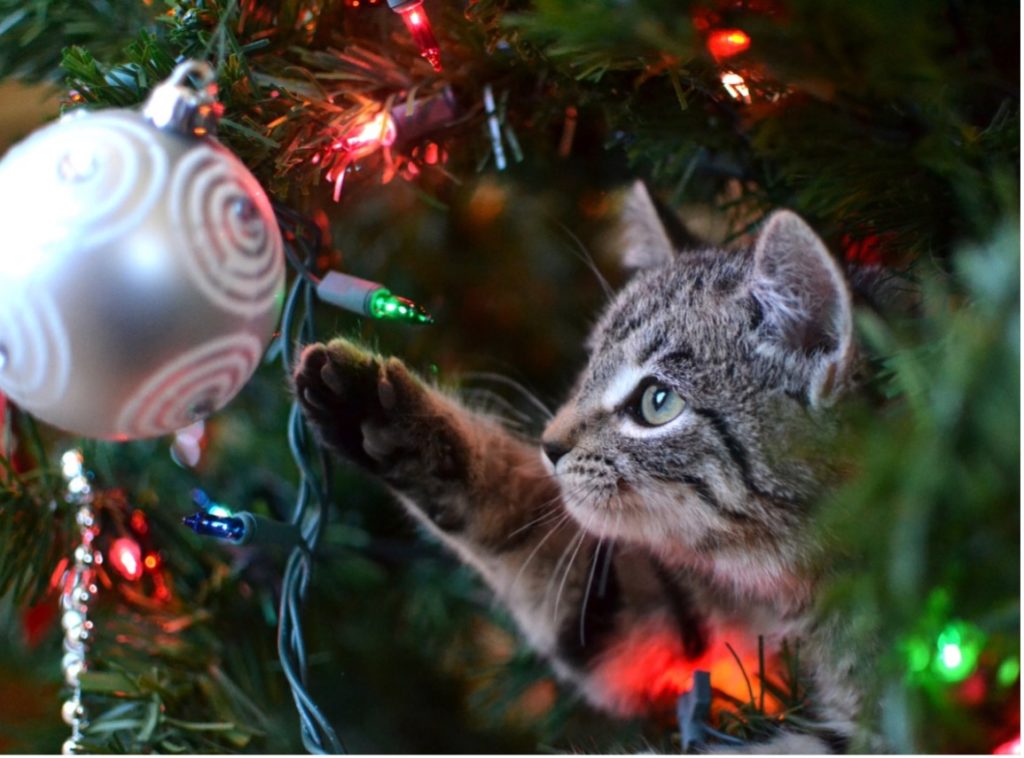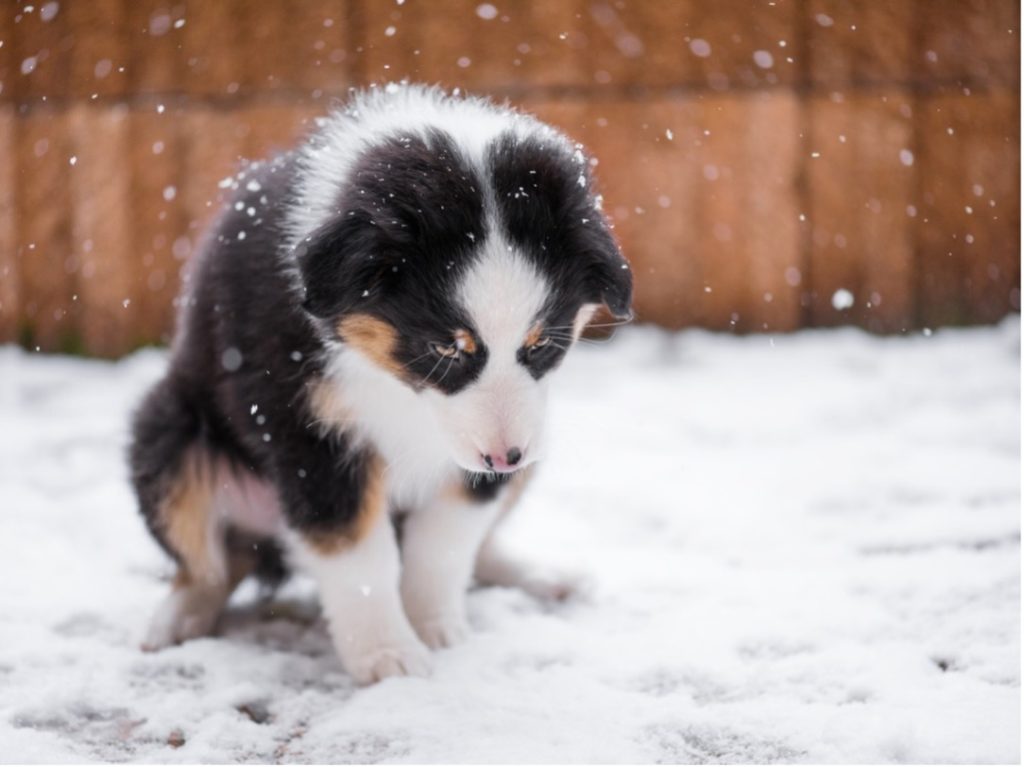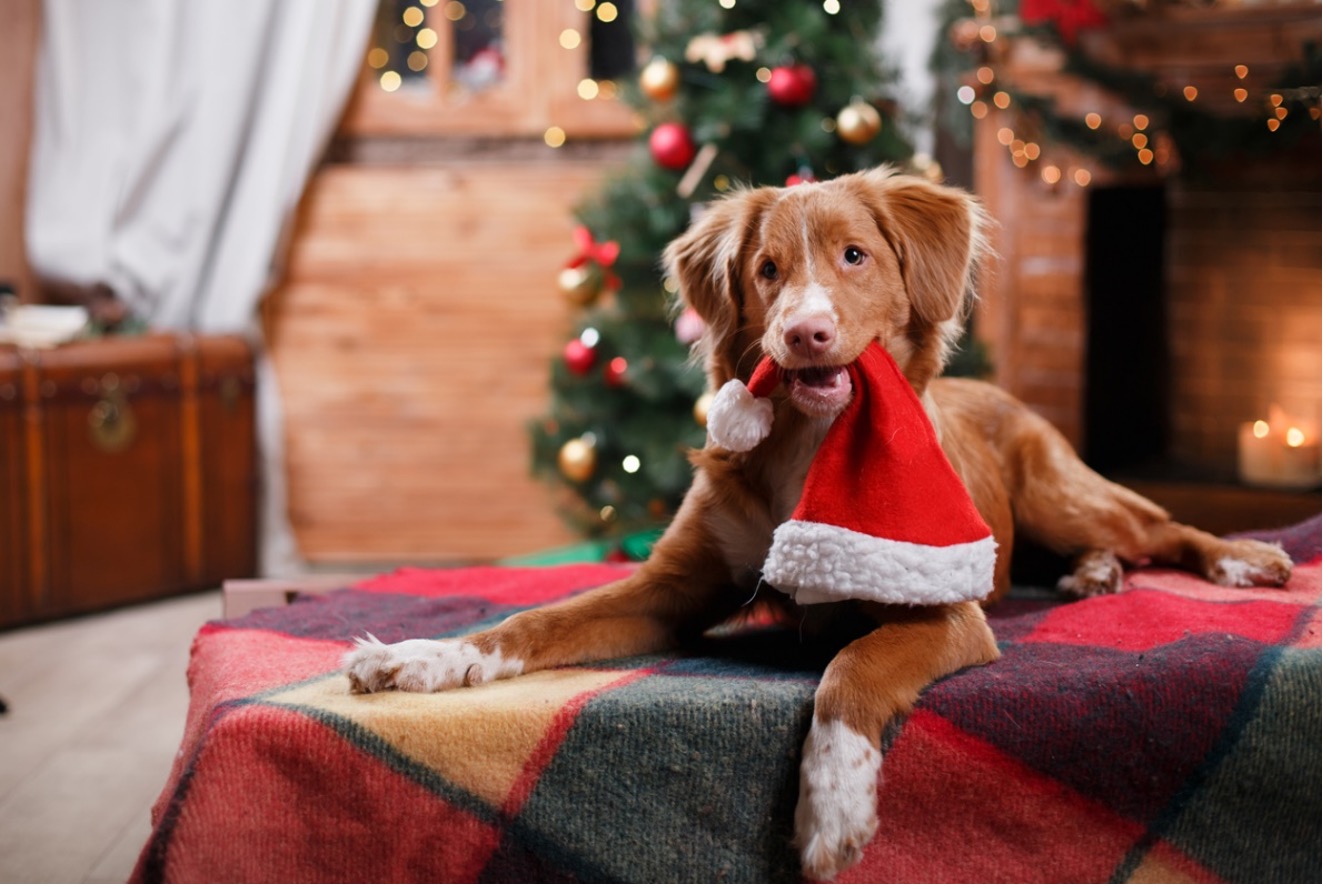The holiday season is upon us! With all the festivities that the winter season brings, we would like to share with you some Holiday Safety Tips to have a safe and happy holiday season with your furry family members.
Keep Your Pets Safe from People Food
Your pet may like to beg for your food, but it is safest to keep all people’s food away from pets. Some foods can cause mild to severe stomach upset, while others can be highly toxic and cause death in a pet.
Here are the top holiday foods that are toxic to animals:
Chocolate, Coffee, and Caffeine
Poultry bones
Nuts
Alcohol
Raisins and grapes
Xylitol
Yeast dough
Onions, Garlic, Chives
Avocado
A Safe Rule of Thumb
Pets eating people’s food is one of the top reasons for emergency veterinary visits. To avoid an emergency over the holidays, play it safe. Keep all people’s food away from your pets. Also, if you have guests, make sure they know not to feed your pet any of their food nor leave any dropped food on the floor or ground for your pets to snatch up!
Play it Safe with Holiday Decorations

Holiday decorations may seem harmless. But they are new items in your home, and most pets will be curious about them and want to check them out.
Get Non-toxic Decorative Flowers and Plants
Poinsettias, Lilies, Amaryllis, and Holly are popular Christmas decorations. Unfortunately, they are toxic to pets. But don’t worry, some other plants and flowers are beautiful alternatives:
- Red roses instead of Poinsettias
- White Orchids instead of Lilies
- Achira instead of Amaryllis
- Autumn instead of Holly
Decorate with Pet Safe Ornaments
The best ornaments to hang on your Christmas tree are ones that will not break and shatter. You can shop online for shatterproof Christmas ornaments, or you can make your own. However, beware of homemade ornaments made from dough and salt. These are toxic to pets. Clay ornaments are much safer. There are also many pet paw print kits you can order online if you would like to make pet paw print ornaments.
Electrical Cords
Keep your pets safe from cords with cord protectors such as the Chewsafe Cord Cover, PetCords Dog & Cat Protector.
Call your veterinarian or Pet Poison Helpline for treatment advice if you suspect your dog or cat has gotten into tinsel.
Protect Your Pets from the Cold Weather

Just like people, pets’ cold tolerance can vary from pet to pet based on their coat, body fat stores, activity level, and health. Be aware of your pet’s tolerance for cold weather.
Long-haired or thick-coated dogs tend to be more cold-tolerant but are still at risk in cold weather. Short-haired pets feel the cold faster because they have less protection. Short-legged pets may become cold more quickly because their bellies and bodies are more likely to contact the snow-covered ground.
Pets with diabetes, heart disease, kidney disease, or hormonal imbalances (such as Cushing’s disease) may have difficulty regulating their body temperature. They may be more susceptible to problems from temperature extremes. The same goes for very young and older pets. If you need help determining your pet’s temperature limits, consult your veterinarian.
Keep an Eye Out for Antifreeze and Ice Melts
Winter is a beautiful time, but we advise you keep an eye out for antifreeze spills or ice melts. Unfortunately, both dogs and cats are attracted to antifreeze and will often lick it up. If they lick up antifreeze, it is an immediate medical emergency.
Antifreeze
Antifreeze can cause kidney failure and death in pets, even if they only eat as little as one teaspoon. If you suspect your pet has ingested antifreeze, bring them to us immediately. The sooner you get your pet to us, the better their chances are for survival. Note: antifreeze that contains propylene glycol is safer than antifreeze with ethylene glycol. In any case, thoroughly clean up any spills from your vehicle, so there is no chance of poisoning. Be sure to check your car radiator regularly and repair leaks right away. Don’t let your pet roam where they may have access to antifreeze.
Ice-melting agents
If your pet eats snow or drinks a small amount of melted snow containing ice-melting agents, it can irritate their mouths. If they swallow enough, it can be very poisonous to them. The chemicals in ice-melting agents cause an electrolyte imbalance and result in seizures, increased heart rate, and death. If a pet develops drooling, vomiting, seizures, or other symptoms, get them to us right away.
You can find pet-friendly ice-melters online.
Final Words
Our team here at Aspen Vet Clinic strive to deliver friendly personal veterinary care to every client-pet family that enters our front doors. It is such a great privilege to know we have the skills and capabilities to help relieve an animal’s pain and owners’ distress when their animal is sick or injured. We are here for you this holiday season. Please contact us for any of your pet’s health needs. We hope you find the above tips helpful and have a safe and very happy holiday season!
Sincerely,
Dr. Kathryn Moriarty & Team
Aspen Veterinary Clinic

